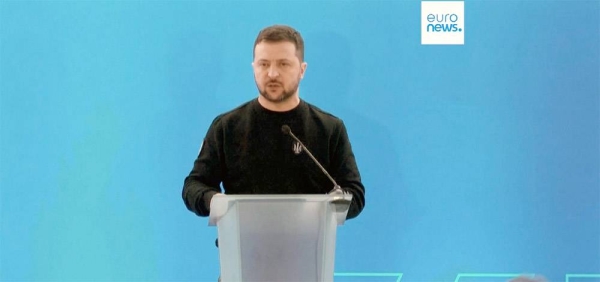
Donald Trump appears to have committed multiple felonies as he sought to return himself to power on 6 January, a judge said in a Monday ruling that ordered the Trump lawyer John Eastman to turn over hundreds of emails to the House select committee investigating the Capitol attack.
The extraordinary ruling marks a breakthrough and paves the way for the select committee to obtain some of Eastman’s most sensitive emails concerning his illegal scheme to overturn the 2020 election, which he had attempted to shield from the inquiry.
“Based on the evidence the court finds that it is more likely than not that President Trump and Dr Eastman dishonestly conspired to obstruct the joint session of Congress on January 6 2021,” ruled Judge David Carter.
Trump and Eastman launched a campaign to overturn a democratic election in a strategy that was unprecedented in American history, Carter said, describing their scheme as a “coup in search of a legal theory” and directly spurred the Capitol attack.
The judge’s order is perhaps the first time ever that a federal court has found a president may have committed a crime while in office – and raises the stakes for the justice department, which has vowed to pursue January 6 criminal cases at any level.
The decision will also serve to undercut Trump’s claim that the investigation is a partisan effort to hurt him politically, now that the select committee’s inquiry has been reaffirmed through the imprimatur of a federal court. It also comes amid reports that Trump’s son-in-law and close aide during his presidency, Jared Kushner, is scheduled to appear before the January 6 panel this week.
The select committee has been pursuing Eastman’s emails around the time of the Capitol attack since he was the architect of the brazen and unlawful scheme to have Mike Pence, then the vice-president, stop the certification of Biden’s election win on January 6.
The scheme – one of several devised by Eastman and political operatives working from a Trump “war room” in the Willard hotel in Washington – called for Pence to refuse to count the electoral college votes for Biden and ultimately return Trump to the presidency.
But Eastman refused to turn over several hundred emails related to the effort despite a subpoena from the select committee, claiming that those communications were protected by attorney-client privilege since he acted as counsel to the former president.
Carter ruled that the possible criminal activity between Trump and Eastman in the days leading up to 6 January meant one document was subject to the so-called crime-fraud exception to claims of attorney-client privilege and must therefore be released to the panel.
The document is an email chain forwarded to Eastman by Trump’s former attorney Rudy Giuliani that recommended the then vice-president, Mike Pence, reject electors for Biden at the certification of his election victory in the 2020 election, the ruling said.
In the draft memo that advanced the plan to obstruct the congressional certification, the Trump lawyers transformed their interpretation of the Electoral Count Act that governed the process into a day-by-day plan that they knew violated the statute, the ruling said.
“Because the memo likely furthered the crimes of obstruction of an official proceeding and conspiracy to defraud the United States, it is subject to the crime-fraud exception and the court orders it to be disclosed,” Carter wrote.
The crime-fraud exception does not require a completed crime or fraud, the ruling said, only that the client consulted the attorney in an effort to complete one. The exception applies even if the attorney does not participate in the criminal activity.
But the select committee indicated they believed Eastman had engaged in criminal activity after he conceded in a separate email that his scheme to have Pence stop or adjourn Biden’s certification on 6 January was unlawful – yet urged Pence to do it anyway.
The judge appeared to agree with the panel and said in the ruling that even if Eastman might be correct that the Electoral Count Act was at odds with the constitution, it did not give Trump license to defy, or allow him to circumvent, the statute.
“Disagreeing with the law entitled President Trump to seek a remedy in court, not to disrupt a constitutionally mandated process,” Judge Carter said. “This plan was a last-ditch attempt to secure the presidency by any means.”












